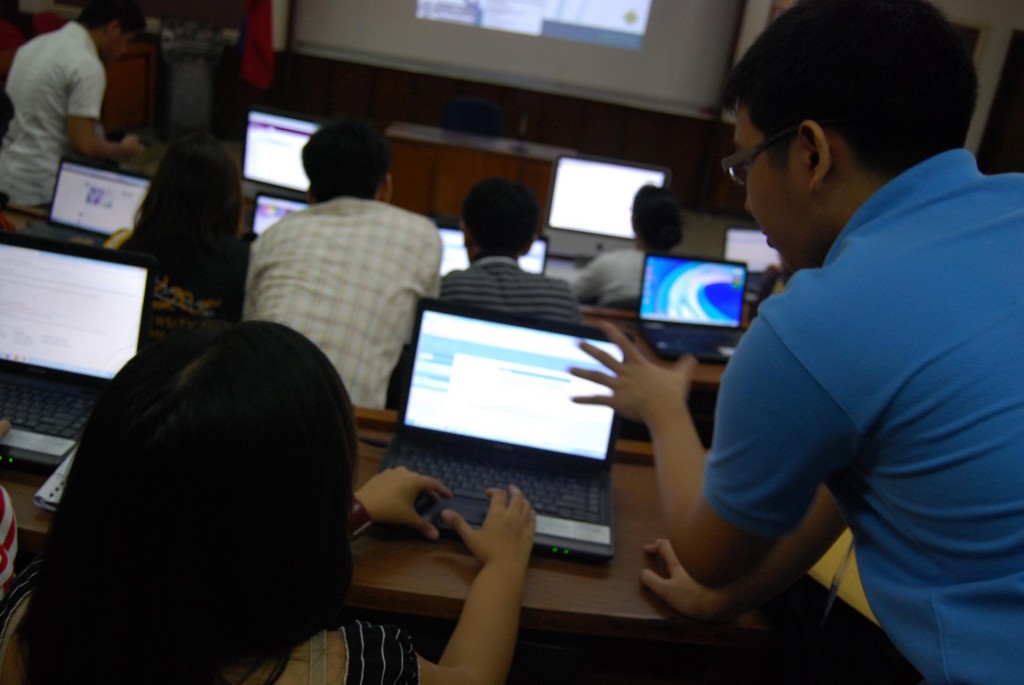70 New Doctors Trained on Telemedicine Before Barrio Work
October 28, 2011 1:01 pm | by Aliyah Lou Evangelista | Posted in News
Tagaytay City, Philippines- National Telehealth Center (NTHC) of the University of the Philippines Manila is preparing 70 new DOH Doctors to the Barrios (DTTBs) in using telemedicine applications in an effort to support their practice in doctorless communities in the countryside.
The 29thbatch of DTTBs under the Doctors to the Barrios Program of the Department of Health (DOH) began their training last October 17 at the Development Academy of the Philippines Campus.
DTTBs are being taught how to do telereferrals to refer difficult to handle cases in 5th to 6thclass municipalities of the country. 26 of them will be deployed in the Mindanao while some will be assigned in Geographically Isolated and Disadvantaged Areas.
Due to the absence of doctors in rural communities, most patients have to travel long hours in order to seek medical attention from clinical specialists in provincial or city centers. According to President Benigno S. Aquino III, as reported by DOH Secretary of Health Enrique T. Ona in his speech last March, 30 percent of Filipinos die without seeing a health professional.
Telemedicine offers some relief to the country’s health challenges by connecting health workers in poor remote rural communities with specialists in the Philippine General Hospital. With the implementation of the 5-year partnership of DOH and UP under the National Telehealth Service Program (NTSP), local health professionals from 606 poorest municipalities and regional centers will be connected to clinical specialists via telemedicine.
“Telemedicine has to be practiced professionally, grounded on a strong ethical-legal base; hence the need to train health professionals is a core component of the NTSP,” Dr. Portia Fernandez-Marcelo, NTHC director said.

Marie Irene Sy, RN shares her public health experience during the pannel discussion. Beside her is Dr. Geohari Hamoy
“Telemedicine, under the NTSP is free of charge to the patients since this is subsidized by the DOH and the UP. While ICT advancements are beginning to be used in health care in the Philippines, the public is warned against those who take advantage of the situation,” she added. According to Dr. Marcelo, there were informal reports that some doctors in the rural areas, who are not enrolled in the certificate course of NTSP, are charging 300 pesos for telemedicine of NTHC.
The course consists of a two day-intensive hands-on training on the ethics and practice of telemedicine. On the first day, a series of discussions for the doctors’ Continuing Medical Education was held. This was followed by the hands-on training on mobile health technologies.
The Certificate Course in eHealth and Telemedicine is a 6-month blended learning course with 2-day face-to-face learning activities, followed by field practice and mentoring, capped by another 1-day face-to-face seminar workshop.

